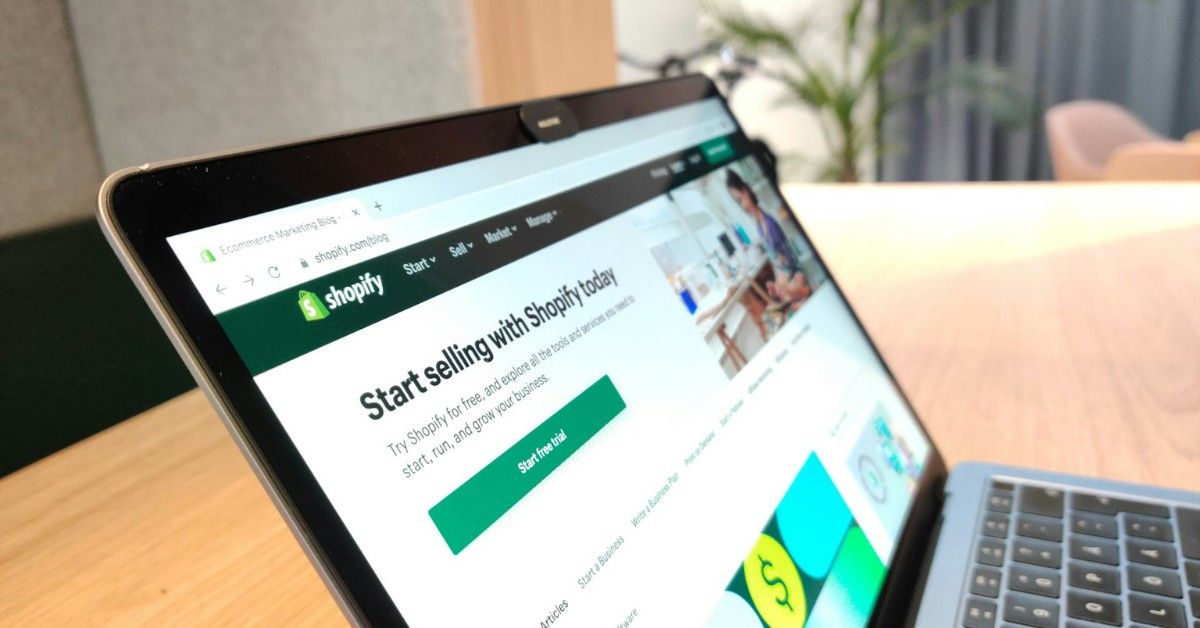Social media has seen an astronomical rise in the last decade, and that growth continues. Around 4.5 billion people now use social media - that’s more than half the entire world population! It’s no wonder, then, that businesses are spending serious money on social media marketing.
One component of a great social media marketing strategy lies in creating effective social media landing pages. In this article, we’ll look at why social media landing pages work and how to create one that helps you achieve your goals.
What Is A Social Media Landing Page?
As the name implies, a landing page is where website visitors land so they can take a specific action, such as giving an email address, purchasing a product from an eCommerce store, or clicking a link in a marketing email.
A social media landing page is the destination page where visitors arrive when they click on a link you share on social media. Both paid and organic traffic campaigns on social media can utilize landing pages.
Why Do You Need A Social Media Landing Page?
Social media landing pages are important for one simple reason: they drive conversions. According to Unbounce, an effective landing page can yield as much as a 27.4% increase in conversions!
Social media landing pages work so well partly because they are campaign-specific. When your visitors get to the page, they get specific instructions as to how to proceed. Here’s an example from Netflix, from a campaign encouraging customers to sign up for its streaming service:
Why a landing page as opposed to your homepage? Because if you send people to your homepage, they will likely see other messages that will distract them from the core action you want them to take for this particular campaign.
When faced with too many choices, website visitors may end up taking no action at all. That’s due to a phenomenon known as choice overload. A landing page, in contrast, focuses on one simple message and instruction. Visitors only have two choices: take action or leave the page.
What Makes A Good Social Media Landing Page?
Now that you know why you should use social media landing pages let’s discuss a few things you need to do to optimize their effectiveness. Here are my five top tips:
1. Don’t Overdo It
Although you need to include all the relevant information on your social media landing page, don’t go overboard. Including too many elements on your landing page will defeat the purpose of using it in the first place. You’ll only end up confusing and distracting your visitors. There are seven essential components to a great landing page:
- Main headline
- Supporting headline
- Unique selling proposition: What makes your offer different?
- Benefits: If your visitors take the desired action, what’s in it for them?
- Images or videos. Visual content yields much higher conversion rates.
- Social proof in the form of reviews or testimonials.
- A call to action: This is your final instruction to your visitor.
All the elements of your landing page should be geared towards achieving your campaign goal. You can be creative, but keep things clean and simple. Don’t forget to check out and avoid the elements that kill conversions most often, too.
2. Be Consistent In Your Messages
You should view your social media landing page as an extension of the social media post that led to it. If one doesn’t neatly lead into the other, you will confuse your visitors and may end up losing that conversion.
According to Carnegie Dartlet, “message match” is vital because it helps ensure the visitor will take action. There’s a reason that person clicked on the link from your social media page. That’s a micro-conversion right there, so keep things aligned on your landing page.
But it’s not just the messaging that should be consistent across platforms. The design elements must also be aligned and on-brand. So use similar images, a cohesive color scheme, and the same font if applicable.
3. Write A Killer CTA
The call to action, or CTA, is your final instruction to your visitor. It’s where you tell them what you want them to do. That means it should be clear, specific, and compelling. A vague CTA will confuse visitors, while a weak one will lead to them taking no action at all.
Therefore, use a strong command verb as your CTA. You want to use words that will provoke emotions. You should also aim to create a sense of urgency or fear of missing out (FOMO). For example, you might let visitors know that they have a limited time to sign up for your webinar, or that stock of a particular product is in limited supply.
Your CTA should be concise and straightforward. It can be as simple as “Buy Now,” “Register,” or “Shop Now.”
Here’s another trick I’ve seen work well when trying to get visitors to take action: include a live chat function. This enables visitors to ask any questions they may have without leaving the landing page. Once they leave the page, you may have lost them for good. You can create a simple chatbot for your page by using a WordPress chat plugin.
4. Make It Mobile-Friendly
Around 50% of all web traffic globally comes from mobile devices, and that figure is rising each year. More and more people are also using their mobile phones to make purchases online. According to Outerbox Design, 79% of customers now buy products online using their smartphones. That’s a lot of potential business to lose!
Therefore, it is of paramount importance to make sure your social media landing pages are mobile-friendly. Use responsive design so that your landing page works equally well on all screen sizes. In 2020, mobile-optimized pages are no longer a nice-to-have, but a necessity.
5. Test, Adjust, Adapt
Your first social media landing page won’t be your last. Nor should you use the same page for every campaign. To find that perfect landing page formula, you’ll need to try things out, monitor your results, and continually adapt.
Therefore, make sure you try out different images, headlines, color combinations, and overall design elements. Experiment with the composition wording and placement of the CTA, too. Create as many combinations as you can, and don’t be afraid to run A/B tests to see what works. The more different aspects you test, the more information you’ll have that will help you to optimize conversions.
Even a tiny change can make a big difference, so stay curious and keep learning and adapting.
Some Great Examples To Inspire You
Now that you know what makes a good social media landing page, here are a few great examples that can inspire you as you create your own:
1. Payne Glasses
This social media landing page from Payne Glasses is also a sales page. It works well because all the elements exist to get the visitor to do one thing: make the purchase.
The product images and information give the visitors all the information they need to decide, while customer reviews convince visitors that the brand is trustworthy.
Although the landing page also gives other options for those who are still not ready to purchase the product (“Save” or “Try On”), they are all geared towards ultimately driving a sale.
2. Skullcandy
This social media landing page from Skullcandy is eye-catching and creative. Instead of using a lot of text, this landing page displays beautiful and innovative product images to show off the earphones. These striking images, along with the caption “super limited edition,” increase the desire for the product and leverage FOMO.
The use of a well-known figure, in this case, singer/songwriter Coco, endorsing the product, also adds credibility.
3. The Honest Co.
This social media landing page from The Honest Co. invites customers to enjoy a free trial of the product. After all, who says no to free stuff?
The bright color scheme evokes cleanliness, while the deeper blue over the CTA form draws the eye straight to that part of the page. An enticing headline, simple copy that demonstrates the benefit of the product, and relevant imagery combine to make this a highly effective social media landing page.
Conclusion
Social media landing pages are a vital part of social media campaigns for eCommerce. Without them, you’ll be missing out on valuable conversion opportunities. The best social media landing pages guide your site, and visitors, through the process step-by-step until they take that desired action. In summary, here are my top tips for a great social media landing page:
- Be creative but don’t overdo it
- Make your landing page mobile-friendly
- Include a compelling CTA
- Be consistent in your messaging and branding
- See what works and adapt accordingly
If you do all these things consistently and stick with them, you’ll be well on your way to using social marketing and social media landing pages to achieve your eCommerce goals.
Bio
Jimmy Rodriguez is the COO and co-founder of 3dcart, an eCommerce software to build SEO-friendly online stores. He's dedicated to helping internet retailers succeed online by developing digital marketing strategies and optimized shopping experiences that drive conversions and improve business performance.







